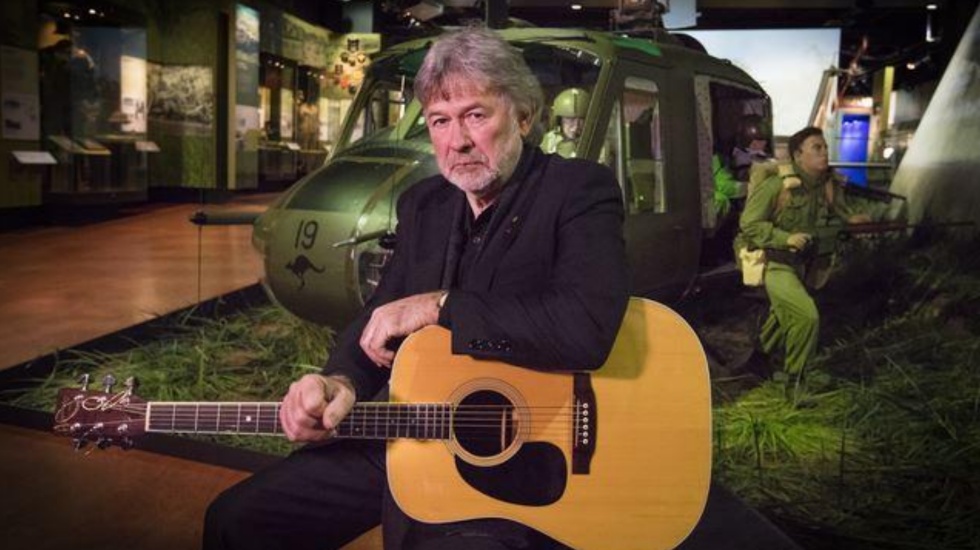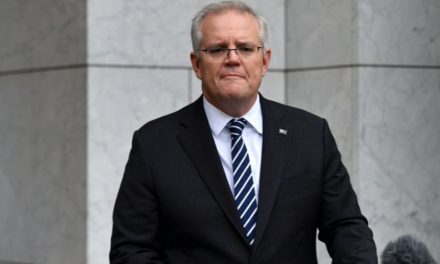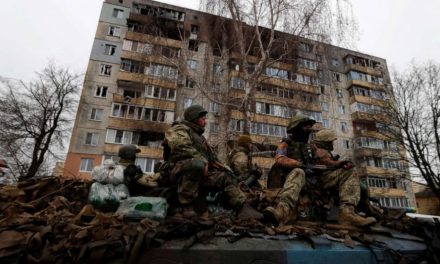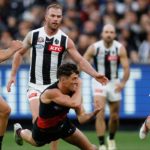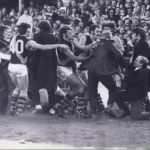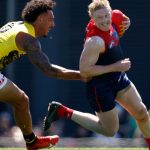John Schumann, writer of the iconic Vietnam War song ‘I Was Only 19’. Photo: Australian War Memorial
I was only 19. First year out of high school. Plonked into the real world. Didn’t know my arse from my elbow. But I knew one thing with certainty. I wouldn’t carry a rifle, or any weapon, and I wouldn’t be shot at and nor would I shoot at anyone to kill them.
The luck of birth and time.
Slide the scale back a few years and to be only 19 was to be subject to fate’s lottery. At only 19, you could become a war child. Still didn’t know your arse from your elbow. But here son, here’s a gun. You’re going to Vietnam.
Mum and Dad and Denny saw the passing out parade at Puckapunyal,
It was a long march from cadets.
The Sixth Battalion was the next to tour
And it was me who drew the card.
We did Canungra and Shoalwater before we left.
And Townsville lined the footpath as we marched down to the quay;
This clipping from the paper shows us young and strong and clean;
And there’s me in my slouch hat with my SLR and greens.
God help me, I was only 19.
It’s impossible to read those words without singing them. They are part of a songline, a thread in the nation’s recent history. That song is, of course, ‘I Was Only 19 (A Walk in the Light Green)’. It’s now woven into the fabric of the country. It may not be the anthem but it’s anthemic, and deeply spiritual, for all the veterans of the armed forces, and indeed, anyone touched by those who went to war. It’s the light in the grain.
Music is many things: wonder, beauty, magic, inspiration, release, escape and enfolding.
It can also be a calling, such as in the artist’s life and the rallying voice for those who did not know how to express their voice or did not think there were others of similar voice.
This year marks the 40th anniversary of ‘I Was Only 19’, and to mark the occasion its writer John Schumann has joined arms with The Waifs to rerecord it.
Schumann has said of the song that it gives to others the experience of veterans, allowing us to walk in their shoes, see through their eyes.
It’s a similar thought to what Harper Lee in To Kill a Mockingbird has Atticus Finch say to his daughter Scout, “You never really understand a person until you consider things from his point of view … until you climb into his skin and walk around in it.”
‘I Was Only 19’ has as its core a true story, that of Schumann’s brother-in-law Mike Storen, who had served in Vietnam.
And but for dumb luck, Schumann might have served as well. He was a teenager at the time but his number never dropped to be conscripted as he told Hunter, “It really was a case of, there but for the grace of God go I.”
PLEASE HELP US CONTINUE TO THRIVE BY BECOMING AN OFFICIAL FOOTYOLOGY PATRON. JUST CLICK THIS LINK.
What greeted the men who served in Vietnam upon their return was a nation unwilling to look them in the eye. The war was deeply unpopular. It was not a battle between good and evil as was the war against Hitler.
The country was not defending its borders from attack, despite the choir of war proponents lining up their dominoes. And, in the end, it was all for nothing. And Australia had 523 fewer men, and another 2400 injured. The toll from combat, of course, was much larger as the years went on. And what greeted them on their return? Nothing.
It was into this void Schumann brought his guitar, voice and sense of humanity and justice. The Australian War Memorial has given the song and its effect due prominence. In an article by Claire Hunter on the website, Schumann says, you can’t perform the song lightly. “It means so much to other people … you have to concentrate and play it with sincerity and intensity every time you play it.
“You have to perform it like it’s the first time you’ve performed it, and you have to perform it like you mean it because the song demands it … [but] in lots of ways it doesn’t belong to me, it belongs to the people about whom it’s written.”
To the many veterans of war, the song spoke to them. Now it is played at Anzac Day memorial services. This is song as an agent of change. And its power has also spoken to other artists who have covered it, from The Herd, Rise Against’s Tim McIIrath to Glenn Richards.
Richards released his version for the Anzac Day appeal, and Augie March performed it at the MCG this year in the Anzac Day clash between Essendon and Collingwood.
The latest version of Schumann with The Waifs is stripped back acoustic, and the treatment of the first verse is both novel and stands you to attention. The vocal blending of both has the timbre of a sun-weathered gum, the wind singing through the time-smoothed branches.
It speaks this is of our country, its inflections and nuance, its history and spirit. It’s not too fine a line to draw its spirit with that of Henry Lawson (with whom Schumann has an affinity, having recorded and performed his poems) and his poem ‘Freedom on the Wallaby’, and this:
So we must fly a rebel flag,
As others did before us,
And we must sing a rebel song
And join in rebel chorus.
We’ll make the tyrants feel the sting
O’ those that they would throttle;
They needn’t say the fault is ours
If blood should stain the wattle!
(Schumann’s brother-in-arms Shane Howard used the first verse in his Rebel Song.)
Here is the collage of fighting words for justice and words born from fighting seeking justice. To take the bloom of youth and sacrifice it in the charnel houses of war needs to be remembered. This song does that. After all, they were only 19.

